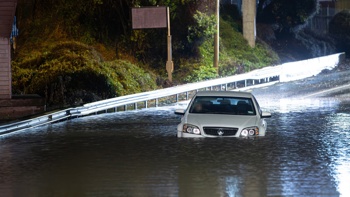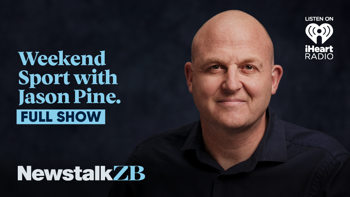Hospitals are increasingly running surgical lists on weekends in a bid to reduce huge wait times which have built up since the Covid-19 pandemic.
While that has has helped cut some of the worst waiting lists, medical staff claim it has also contributed to a large number of last-minute cancellations during the week, as there are not enough nurses to work in theatres.
Doctors’ advocates are also questioning whether it is sustainable to ask under-pressure surgeons to extend their hours into the weekend.
Surgical waiting lists soared during the Covid-19 pandemic as most elective surgeries were put on hold.
When Te Whatu Ora Health New Zealand was established in mid-2022, chief executive Margie Apa issued a directive to hospitals that no person should be waiting for more than a year for surgery by the end of 2023.
The target - which excludes orthopaedic operations - is expected to be reached.
Medical staff told the Herald hospitals have gone into overdrive, running surgery lists on weekends and offering staff double pay to work those shifts.
“They are just whacking on these extra lists,” said a frontline staff member at North Shore Hospital, who asked to remain anonymous because they did not have permission to speak to media.
“They are doing extra elective lists every weekend, extra acute lists every weekend, but they are not increasing our FTE [fulltime equivalent] staffing to cover the extra operations that we are doing.
“The main thing that worries me is that while they’re doing the extra lists on the weekend, the people are having their surgeries cancelled because there are either not enough nurses or the resources are being used up on the weekend for extra lists.”
Performance indicators obtained by the Herald showed at North Shore Hospital, 145 people had their surgery cancelled on the scheduled day in the last three months.
“[The patients] have starved all day, they’ve booked the time off work, they’ve got someone to drive them to hospital, they’ve organised the post-op period, and then they wait all day and at 4 o’clock they say, ‘Sorry we’ve run out of time’,” the source said.
It was relatively unusual for surgeries to be cancelled on their scheduled day at the hospital, the staff member said. But a Te Whatu Ora spokesman said it needed to be seen in context - 3000 surgeries were performed at North Shore Hospital over this period.
Te Whatu Ora group manager of planned care Duncan Bliss said every effort was made not to cancel surgeries on the day they were scheduled. While he acknowledged that workforce shortages were one of the pressures on hospital services, he added there were multiple reasons why surgeries might be put off - including a new patient with major trauma, or a patient’s condition changing.
“We acknowledge the impact waiting longer for surgery and treatment has on patients and their families,” Bliss said.
“We understand the additional stress for patients and whānau who are affected by longer waiting times, and work is continuing to address the system pressures that affect both clinic and theatre.”
Bliss said most hospitals were running weekend surgical lists when capacity allowed. A portion of these hospitals were doing this to clear backlogs of operations, he said.
/cloudfront-ap-southeast-2.images.arcpublishing.com/nzme/CY4IBQPRYZB4RD3644FLNGURRI.jpg) Te Whatu Ora chief executive Margie Apa ordered hospitals to prioritise patients who had been waiting more than a year for surgery - but not at the expense of urgent operations. Photo / Mark Mitchell
Te Whatu Ora chief executive Margie Apa ordered hospitals to prioritise patients who had been waiting more than a year for surgery - but not at the expense of urgent operations. Photo / Mark Mitchell
Association of General Surgeons president Dr Vanessa Blair said surgeries were usually cancelled at late notice because of the absence of an anaesthetic technician.
While there were initiatives in place to increase the number of technicians and nurses, it would take some time to fill the workforce gaps, Blair said.
A taskforce on planned care - also known as elective or non-urgent surgery - came up with 100 recommendations to reduce waitlists last year, many of which have been implemented. They included moving surgical teams across regional sites to utilise available theatre capacity, and outsourcing some work to the private sector.
Blair said members had reported hospitals were also considering surgical lists on weekends. This was not a long-term, sustainable solution, she said.
“For a workforce that is already exhausted, working on Saturdays just really isn’t something that they want to do. We need to think of their wellbeing.”
She added that waitlists were currently so long that lower-priority surgeries were not taking place.
“And so [we] are just becoming surgeons that are only really operating on cancer and urgent benign cases, so everything else just gets pushed. That means there is a rise in waiting times for the non-urgent.”
Gary Osborne, from Auckland’s Te Atatū, is among the patients who are considered “non-urgent”. He was diagnosed with arthritis in both knees seven years ago and was placed on a waiting list for surgery at Waitākere Hospital, but was later removed from it during the pandemic because his operation was “low priority”.
Osborne said he was once a keen hiker but now can’t walk further than 100 metres and has to drive everywhere.
“I used to do the lawns in two and a half hours, whereas now it takes me three days, a bit at a time. Walking downhill is unbearable.”
Earlier this year, he received a letter telling him he would get an operation within four months. When that time had passed, he was told the wait was now six months. A month ago, he was told it would be a year.
“I’m 77 so by the time they get round to doing something, I guess they won’t have to do it,” he said.
A spokeswoman for National MP Shane Reti, who is expected to be Health Minister in the new government, said he could not comment until coalition negotiations were completed.
National campaigned on reintroducing national health targets, including a target for wait times. It also wants to recruit more nurses through bonding schemes and make it easier for foreign nurses to work in New Zealand.
Isaac Davison is an Auckland-based reporter who covers health issues. He joined the Herald in 2008 and has previously covered the environment, politics, and social issues.
Take your Radio, Podcasts and Music with you









